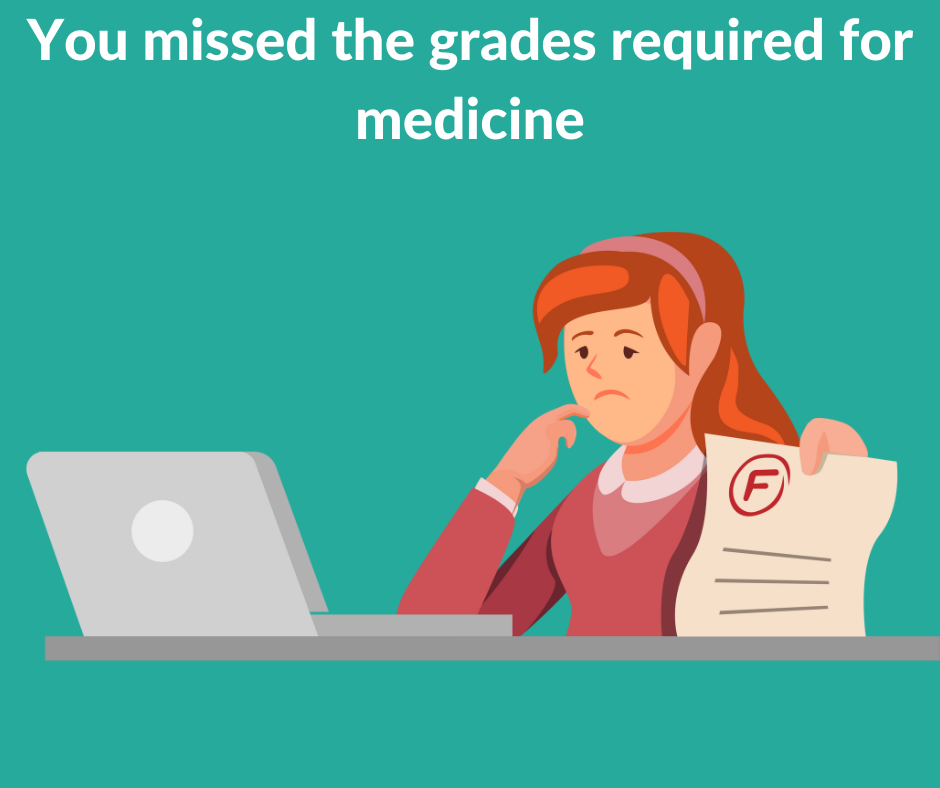An Important Day For Your Application
A level grades of AAA or above on the first sit are pretty much a must for medicine, with many medical schools refusing to accept resits. This means that A level results day is often one of the most important days in your medical application journey, especially as admissions become more competitive.
This is the time when you find out if you did get on your course – or if you didn’t get an offer, it’s a chance to go into Clearing and find one – making the day even more stressful.
When Is A level Results Day 2024?

A levels results are released to students on 15th August 2024, although schools and universities have access to them a little earlier. When you can pick up your results, and whether you can access them online or need to go into your school, depends on your institution – so make sure to check in advance.
You can access UCAS from 9am online, though; while you can’t see your grades, you’ll find out whether you’ve been accepted at your firm or insurance choice university (although beware, as UCAS usually crashes due to the volume of people checking).
Note: if you’re taking different qualifications, you might have a different results day. SQA results day (for Scottish qualifications like Highers and Advanced Highers) is 6th August 2024, and GCSE results day is 22nd August, if you’re taking or resitting GCSEs.
T levels and BTECs will also have the results day of 15th August while International Baccalaureate results will be released on 6th of July. However, you may not get a final decision from your universities until the 15th if they are waiting for A levels to make decisions.
Preparing For A level Results Day
A level results can be emotional and stressful, so it’s worth preparing to make sure you keep a level head! Here are our top tips:
- Be prepared: know what to expect so you’re not out of your depth.
- Plan: have a plan A, plan B, plan C… Knowing you have a plan for any eventuality, from how you’ll celebrate meeting your offer conditions to how to go into Clearing, can be reassuring.
- Explore your options in advance: make sure you know what your options are and how they relate to a career in medicine, from reapplying to studying abroad or a graduate entry course. This helps you avoid making impulsive decisions on the day that you might regret later.
- Use your support network: have trusted adults – they may be teachers, parents, siblings or mentors – who can help you out in a difficult time. Knowing when to ask for help is a key skill!
What To Expect On A level Results Day
On the day itself, you’ll have two separate things to check: what your grades are, and whether you’ve been accepted by your firm or insurance choice course. Make sure you can check both promptly: we’d recommend checking UCAS first, as you may have dropped a grade but still been accepted!
Make sure you know how you need to collect your grades at your school and think about how you’ll manage the process. You may want to open the results letter in private, for example, rather than in front of your friends.
If your results aren’t what you expected, you’ll need to act quickly, to think about whether you want to remark papers or to call your university if you held an offer to try and negotiate with them. Medicine can go into Clearing, but it’s very fast paced, so you’ll want to enlist friends and family and be prepared to call universities as soon as you can.
This is why it’s really important to plan your plan B in advance. After that flurry of activity, though, it’s time to reflect and be kind to yourself as you explore your next steps.
Next Steps After A level Results Day
After the A level results day, there are several situations you may find yourself in:
1.

Congratulations! You don’t need to do anything – the medical school will be in touch with occupational health, accommodation and all the information you need. Pat yourself on the back and enjoy a well-earned rest before you start your demanding course.
2.

Congratulations – you’ve still cleared a major hurdle in your medical application journey! Hopefully, you got onto Clearing as soon as you saw your grades and may have an interview to prepare for. Otherwise, you’re in a great place to take a gap year and reapply next year.
3.

This is a bit trickier, and you’ll have some complicated decisions ahead about your best option, from resitting the exams to looking at studying abroad or graduate entry courses.
